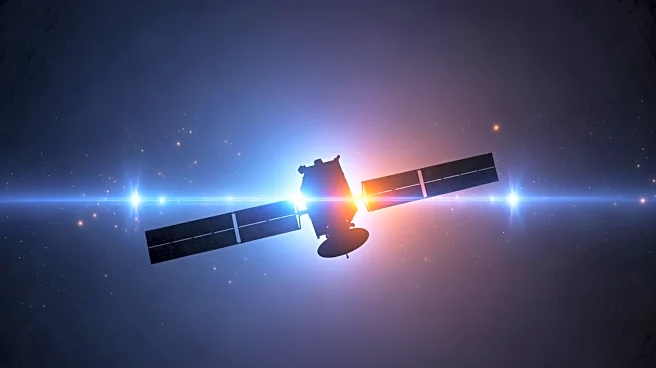What's Happening?
Belgium has experienced a series of drone incursions over critical infrastructure sites, prompting the suspension of flights at Brussels and Liège airports and concerns over security at the port of Antwerp. In response, Belgium has sought assistance from
Britain, France, and Germany, who are deploying air force experts to help manage the situation. The European Commission has labeled these drone activities as part of a hybrid war allegedly conducted by Russia, although Russia denies these claims. The Belgian government is taking steps to enhance its national air security, with plans for a fully operational National Air Security Center by January 1, 2026.
Why It's Important?
The deployment of anti-drone teams by European nations highlights the growing concern over the security of critical infrastructure in Belgium and potentially across the EU. These incursions are linked to geopolitical tensions, particularly regarding the use of Russian frozen assets to support Ukraine. The situation underscores the vulnerability of infrastructure to unmanned aerial vehicles and the need for coordinated international efforts to address such threats. The involvement of major European powers indicates the seriousness of the threat and the potential for broader implications on EU security policies.
What's Next?
Belgium's National Air Security Center is expected to be fully operational by early 2026, which may enhance the country's ability to respond to drone threats. The ongoing geopolitical tensions related to Russian assets and Ukraine may continue to influence security measures in Belgium and other EU countries. Further international cooperation and technological advancements in drone detection and defense systems are likely to be pursued to mitigate such threats.
Beyond the Headlines
The drone incursions raise ethical and legal questions about the use of unmanned aerial vehicles in warfare and espionage. The situation may lead to increased regulation and international agreements on drone usage and airspace security. Additionally, the incident could prompt discussions on the balance between national security and civil liberties, particularly in terms of surveillance and airspace control.















